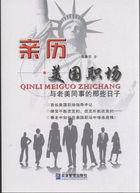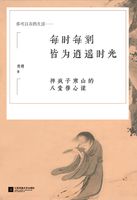Why refuse, in these days, to the majestic adversary of the most barren of heresies the grandeur she derived from the struggle itself?
Calvinists have written much against the "craftiness" of Charles IX.;but travel through France, see the ruins of noble churches, estimate the fearful wounds given by the religionists to the social body, learn what vengeance they inflicted, and you will ask yourself, as you deplore the evils of individualism (the disease of our present France, the germ of which was in the questions of liberty of conscience then agitated),--you will ask yourself, I say, on which side were the executioners. There are, unfortunately, as Catherine herself says in the third division of this Study of her career, "in all ages hypocritical writers always ready to weep over the fate of two hundred scoundrels killed necessarily." Caesar, who tried to move the senate to pity the attempt of Catiline, might perhaps have got the better of Cicero could he have had an Opposition and its newspapers at his command.
Another consideration explains the historical and popular disfavor in which Catherine is held. The Opposition in France has always been Protestant, because it has had no policy but that of /negation/; it inherits the theories of Lutherans, Calvinists, and Protestants on the terrible words "liberty," "tolerance," "progress," and "philosophy."Two centuries have been employed by the opponents of power in establishing the doubtful doctrine of the /libre arbitre/,--liberty of will. Two other centuries were employed in developing the first corollary of liberty of will, namely, liberty of conscience. Our century is endeavoring to establish the second, namely, political liberty.
Placed between the ground already lost and the ground still to be defended, Catherine and the Church proclaimed the salutary principle of modern societies, /una fides, unus dominus/, using their power of life and death upon the innovators. Though Catherine was vanquished, succeeding centuries have proved her justification. The product of liberty of will, religious liberty, and political liberty (not, observe this, to be confounded with civil liberty) is the France of to-day. What is the France of 1840? A country occupied exclusively with material interests,--without patriotism, without conscience;where power has no vigor; where election, the fruit of liberty of will and political liberty, lifts to the surface none but commonplace men;where brute force has now become a necessity against popular violence;where discussion, spreading into everything, stifles the action of legislative bodies; where money rules all questions; where individualism--the dreadful product of the division of property /ad infinitum/--will suppress the family and devour all, even the nation, which egoism will some day deliver over to invasion. Men will say, "Why not the Czar?" just as they said, "Why not the Duc d'Orleans?" We don't cling to many things even now; but fifty years hence we shall cling to nothing.
Thus, according to Catherine de' Medici and according to all those who believe in a well-ordered society, in /social man/, the subject cannot have liberty of will, ought not to /teach/ the dogma of liberty of conscience, or demand political liberty. But, as no society can exist without guarantees granted to the subject against the sovereign, there results for the subject /liberties/ subject to restriction. Liberty, no; liberties, yes,--precise and well-defined liberties. That is in harmony with the nature of things.
It is, assuredly, beyond the reach of human power to prevent the liberty of thought; and no sovereign can interfere with money. The great statesmen who were vanquished in the long struggle (it lasted five centuries) recognized the right of subjects to great liberties;but they did not admit their right to publish anti-social thoughts, nor did they admit the indefinite liberty of the subject. To them the words "subject" and "liberty" were terms that contradicted each other;just as the theory of citizens being all equal constitutes an absurdity which nature contradicts at every moment. To recognize the necessity of a religion, the necessity of authority, and then to leave to subjects the right to deny religion, attack its worship, oppose the exercise of power by public expression communicable and communicated by thought, was an impossibility which the Catholics of the sixteenth century would not hear of.
Alas! the victory of Calvinism will cost France more in the future than it has yet cost her; for religious sects and humanitarian, equality-levelling politics are, to-day, the tail of Calvinism; and, judging by the mistakes of the present power, its contempt for intellect, its love for material interests, in which it seeks the basis of its support (though material interests are the most treacherous of all supports), we may predict that unless some providence intervenes, the genius of destruction will again carry the day over the genius of preservation. The assailants, who have nothing to lose and all to gain, understand each other thoroughly; whereas their rich adversaries will not make any sacrifice either of money or self-love to draw to themselves supporters.
The art of printing came to the aid of the opposition begun by the Vaudois and the Albigenses. As soon as human thought, instead of condensing itself, as it was formerly forced to do to remain in communicable form, took on a multitude of garments and became, as it were, the people itself, instead of remaining a sort of axiomatic divinity, there were two multitudes to combat,--the multitude of ideas, and the multitude of men. The royal power succumbed in that warfare, and we are now assisting, in France, at its last combination with elements which render its existence difficult, not to say impossible. Power is action, and the elective principle is discussion.














